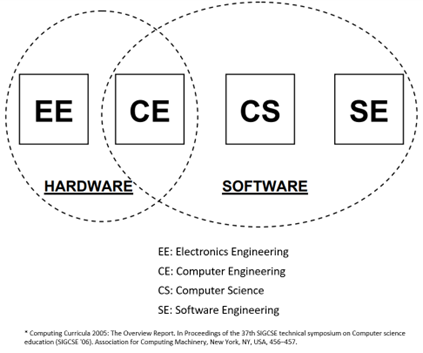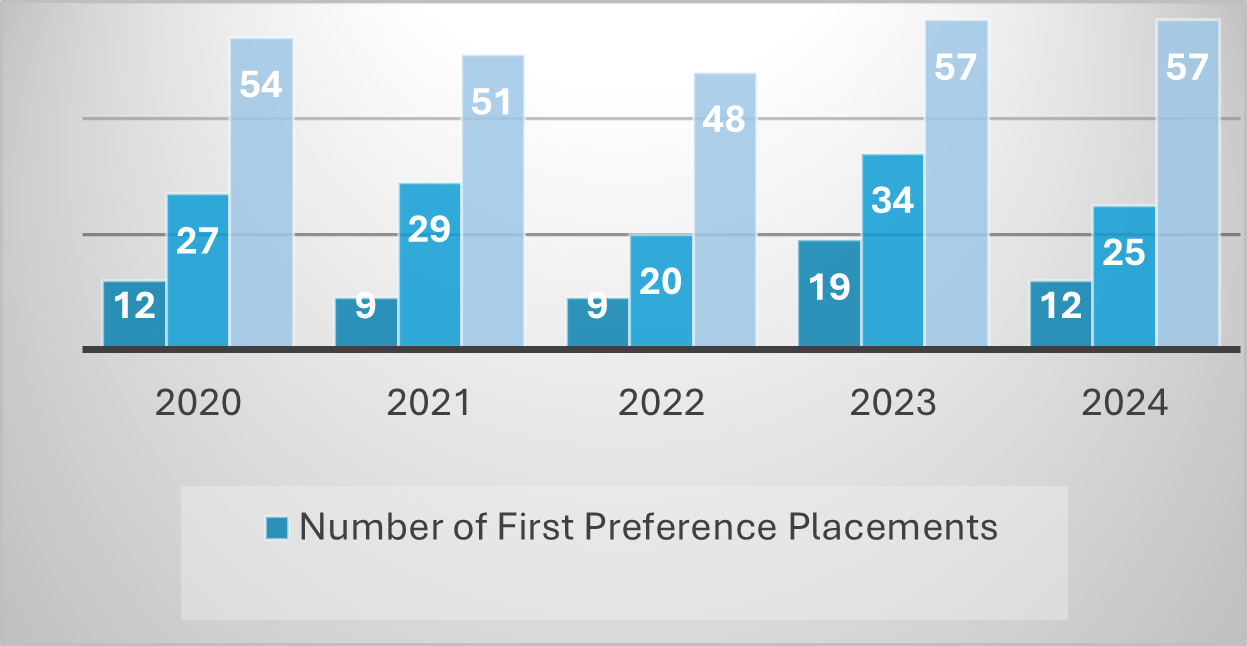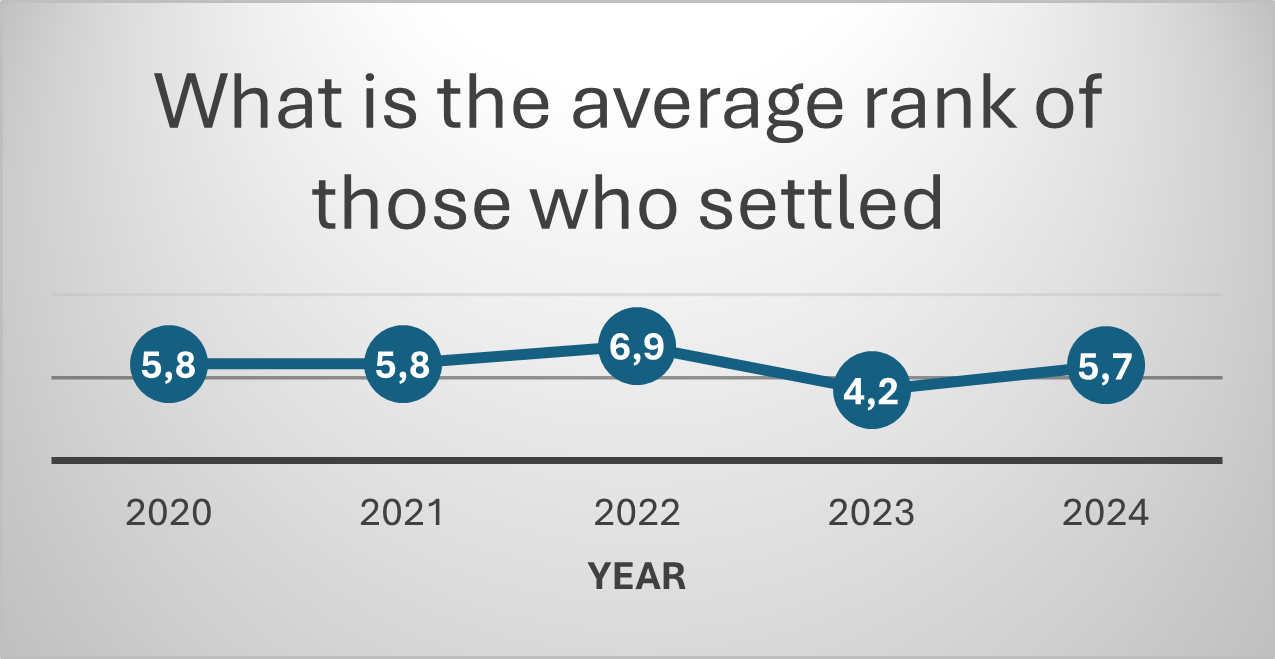Prospective Student-Department of Computer Science
The study focus of Computer Science is the storage, processing, conversion of electronic information and data in computers, the display and transmission in different electronic media, and the computational processes that provide access to all this data. Computer Science is the discipline that studies the efficient applicability of algorithms and solution methods developed for these calculations through software expressions and structures, their automation, and the computational limits of computers, and deals with all these with theoretical (theoretical) and practical approaches.
While the theoretical part of science consists of fields of study such as Computational Theory, Algorithms and Data Structures, Informatics and Coding Theory, Programming Languages, on the applied side Artificial Intelligence, Computer Architecture and Engineering, Computer Graphics, Scientific Computing, Computer Networks, Parallel and Distributed Systems, Computer Security and There are fields such as Cryptography and Software Engineering.
Natural language processing, data mining, optimization, modeling and simulation, big data analysis, intelligent decision support systems and bioinformatics, which are handled more widely due to new technological developments, are other important study subjects of Computer Science.
Computer Science Department
Since our department was founded with the aim of providing training for both theoretical and practical specific study areas of computer science, it started out with the name of Computer Science. The first Computer Science Department established under the Faculty of Science in universities in Turkey is located at Dokuz Eylül University.
Unlike the classical computer engineering education with a hardware-oriented curriculum, the Department of Computer Science undergraduate program responds to the increasing need for experts in the public and private sectors with a software and application-oriented 4-year education program. In this direction, as in many Computer Science departments in the USA, Canada and Europe, an education program has been designed in which our students will gain comprehensive knowledge and skills in priority areas and subjects such as Information Systems, Software Development, Statistical Analysis, Flexible Computing, Data Mining, Fuzzy Logic, Artificial Intelligence, Data Science, Intelligent Systems and Operations Research in the 3rd and 4th years, building on the foundation acquired in disciplines such as Mathematics, Statistics and Software Engineering in the first years.
In addition to the curriculum, the Computer Science Student Society, which was established in 2012 under the umbrella of Dokuz Eylül University Faculty of Science, conducts various studies on topics such as Gaming and Modeling, Robotics and Embedded Systems, Programming Competition Teams, Web and Mobile Application Technologies independently or in coordination with their mentor faculty members.

Why Computer Science?
Unlike Software, Computing and other similar engineering disciplines, the field of Computer Science can be defined by the following three basic categories:
- Finds and develops efficient and effective computational methods for solving complex problems and difficult tasks.
- Designs and adapts the most appropriate algorithms and software for today’s problems.
- Develop new methods and approaches in the use of computers and information technologies.
The figure below shows the systems context in which Computer Science is positioned in addition to the related engineering disciplines. To summarize, computer science graduates focus more on software systems than electronics and computer engineers, and more on hardware than software engineers.
Furthermore, according to 2015 data from the US Department of Education’s National Center for Education Statistics, over 6,000 students graduated from master’s degree programs in Computer Science, while only under 2,000 students received a master’s degree in Computer Engineering during the same period.
References:
- Association for Computing Machinery (ACM)
- Computer Science @ Wikipedia
- The State University of New York at Buffalo
- US National Center for Education Statistics
From which score type and how many students are admitted to the department?
A total of 62 students are admitted from the SAY score type of the YKS exam and 2 of them are reserved as the first place quota.
How many points is enough to enter the department?
The base score and success ranking of the department has increased every year, and 100% occupancy rate has been reached in all years of student enrollment. In previous years, students were admitted to the department with a ceiling score of 428. Before deciding on your preference, you can review the guide published on ÖSYM’s website here.
Is the language of instruction Turkish?
Yes, the courses in our department are taught in 100% Turkish. However, since the majority of the resources used in the courses and the literature reflecting the current developments in our field are in English, it will be more beneficial for our students to have sufficient English proficiency in terms of the level of education they will reach, the education they will receive, and their career goals.
Is it compulsory to attend the Preparatory Class or take the English proficiency exam?
No, neither is compulsory. However, students who wish to do so can take English preparatory education completely at their own discretion. However, according to Article 17 of the School of Foreign Languages Application Principles, which was amended in 2021, all students who want to study optional foreign language preparatory education are required to take exemption and/or placement exams. Formal education students who apply for optional foreign language preparatory class education are ranked by taking into account the results of the exemption and/or placement exams, and 50% of the applicants are accepted, starting with the students with the highest score.
In which fields can Computer Science graduates find a job?
Graduates of the department, with the knowledge, skills and experience gained during their education, will be able to work as experts and managers in software development, data analysis / mining, software architecture, programming, database design / management, system analysis and integration, etc. in departments such as Information Technologies, Software Development, Data Processing, Research and Development and Project Management of public and private organizations from all sectors, especially IT.
In addition, it is aimed that our graduates will have the knowledge to continue independent scientific research in various academic institutions in line with their special interests and have the infrastructure to establish pioneering and innovative companies that respond to changing social needs.
Is there a student dormitory close to the campus?
Yes. Buca Girls’ Dormitory is located in Buca Faculty of Education and serves female students with a capacity of 504 beds; DEU Student Dormitory is located in Buca Şirinkapı Neighborhood and serves male students with a capacity of 760 beds. In addition, there are state dormitories belonging to the Credit Dormitories Institution and private dormitories operated by other organizations in Buca district where our campus is located (Izmir Girls’ Dormitory, Izmir Barbaros Student Dormitory, Çakabey Student Dormitory, etc.) and other districts of Izmir.
How is transportation to the campus provided?
Tınaztepe Campus is accessible by public transportation from various points in the city. There are direct bus lines to the campus from Bornova, Karşıyaka and Fahrettin Altay Square and Buca Şirinyer on the ring road (except for the summer season), as well as connecting bus services from various points in Izmir, especially IZBAN Şirinyer station, using the transfer center at the North Entrance of Tınaztepe Campus. Please check the ESHOT website for up-to-date information.
What kind of opportunities do you offer to your students about studying abroad?
Students of our department can study for 1 or 2 semesters in foreign and national universities with which we have signed agreements within the scope of ERASMUS, MEVLANA and FARABİ student exchange programs. Depending on the number of universities we have signed an agreement with and the demand of the student, education and internship opportunities in Europe are increasing every year. You can find detailed information about our students or faculty members who have previously studied in Spain, Germany and Portugal on the Education / Exchange Programs page.
Do you have Master’s and PhD programs?
Since the 2014-15 academic year, Dokuz Eylul University Institute of Natural and Applied Sciences has been offering a Master’s degree program in Computer Science in 30% English. At the same time, the Computer Science PhD Program started education in 100% English in the 2019-2020 academic year within the Graduate School of Natural and Applied Sciences of the University.
Computer Science Department Success Statistics
|
Year |
Number of Placements |
Base Point |
Base Achievement Rank |
|
2020 |
62 |
349.72 |
159.29 |
|
2021 |
62 |
312.14 |
142.60 |
|
2022 |
62 |
396.88 |
109.66 |
|
2023 |
62 |
421.84 |
85.72 |
|
2024 |
67 |
384.51 |
99.785 |
2024 YKS Ceiling Points and Ranking: 459.95 – 31.656
|
Year |
Number of First Preference Placements |
Number of Placements as First Three Preferences |
Number of Placements as Top Ten Preference |
What is the average rank of those who settled |
|
2020 |
12 |
27 |
54 |
5.8 |
|
2021 |
9 |
29 |
51 |
5.8 |
|
2022 |
9 |
20 |
48 |
6.9 |
|
2023 |
19 |
34 |
57 |
4.2 |
|
2024 |
12 |
25 |
57 |
5.7 |


Events Calendar
| M | T | W | T | F | S | S |
|---|---|---|---|---|---|---|
|
23
|
24
|
25
|
26
|
28
|
1
|
|
|
2
|
3
|
4
|
5
|
7
|
8
|
|
|
9
|
10
|
11
|
12
|
13
|
14
|
15
|
|
16
|
17
|
18
|
19
|
20
|
21
|
22
|
|
23
|
24
|
25
|
27
|
28
|
29
|
|
|
30
|
31
|
1
|
2
|
3
|
4
|
5
|



